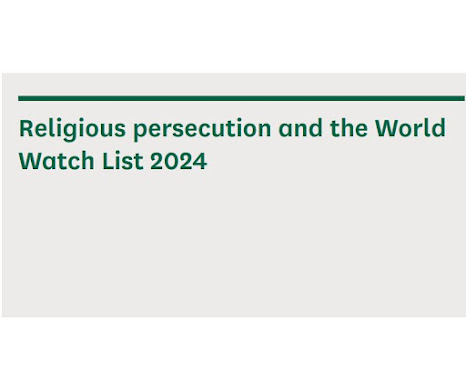FORUM: "Building a world where religious diversity is celebrated and where everyone can live in safety and dignity.” International Day Commemorating the Victims of Acts of Violence Based on Religion or Belief 2025. Around the world, individuals and communities face violence based on religion or beliefs. We must urgently combat this scourge. It is crucial to avoid generalizations about entire religions or religious groups based on the actions of a few individuals or extremist groups. It is also important to understand the specific context and motivations behind acts of violence for addressing the root causes and preventing future incidents. Promoting interfaith dialogue, tolerance, and respect for religious diversity is crucial for fostering peaceful coexistence. Governments must protect all people and places of worship, implement comprehensive anti-discrimination laws, and invest in education initiatives that foster inclusion and equal rights. Digital platforms must enforce content moderation policies that align with international human rights standards. Political and religious leaders must unequivocally condemn hate speech, advance dialogue, and make clear that violence can never be an answer. We must work together to stem the tide of hatred and promote tolerance, mutual understanding and respect.This year’s offers the opportunity to make visible the multiple, daily and egregious violence that takes place based on religion or belief, and to seek to respond to its root causes, urgently and with far greater determination. Follow the conversation with the hashtags: #22August, #Religiousviolence, #CounterViolentExtremism, #ForSafeWorship, #AgainstReligiousViolence.
EVENTS: On August 22nd; A webinar to mark the International Day Commemorating the Victims of Acts of Violence Based on Religion or Belief 2025 will be held at UNHQ in New york. Religious or other ideologies and beliefs can never be evoked to justify attacks against life, human dignity and rights, and in no circumstances should be used for suppressing critical and dissenting opinions and views, and undermining rule of law, peace and the democratic principles, as has been reiterated by the United Nations experts. The topics of the panel discussion will focus on Freedom of religion or belief and gender equality; the Religion and freedom of religion or belief literacy and the Antisemitism. Register to participate!
Message of the United Nations Secretary-General, Mr. António Guterres on the International Day to commemorate victims of acts of violence based on religion or belief 2025.
Across the globe, people continue to be harassed, attacked – and even killed – simply for what they believe.
Places of worship are desecrated. Communities are terrorized. Online platforms are flooded with hate.
These acts are not only abhorrent – they are a threat to our shared humanity.
When people are targeted for their faith, when hate speech goes unchecked, when impunity prevails – everyone is at risk.
We must confront this threat head-on.
Governments must adopt and enforce strong anti-discrimination laws – and invest in education that fosters respect, inclusion and human rights for all.
Political, religious and community leaders must reject divisive tactics and champion dialogue within and across communities.
And digital platforms must step up and incorporate safeguards to avoid becoming megaphones of hate.
On this International Day, we remember the victims and recommit to action.
Let us stand together to build a world where diversity is celebrated and everyone can live in safety and dignity.






